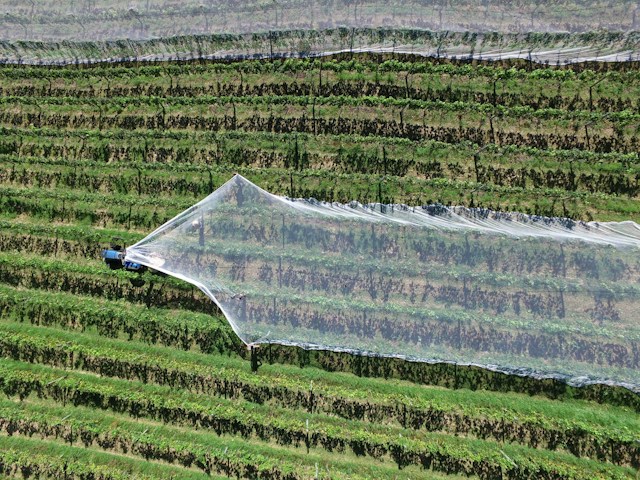Can sustainable agriculture practices help combat food insecurity in developing nations?

In an era of rapidly changing climate and escalating global hunger, the question of food security is more pertinent than ever. All too often, people in developing countries are at the mercy of fluctuating food prices, declining agricultural productivity, and inconsistent access to water and other farming essentials. The crux of the issue lies in the need for secure and sustainable food production methods. This is where sustainable agriculture practices come to the forefront, presenting potential solutions for food insecurity in developing nations.
The Food Insecurity Crisis in Developing Nations
Food insecurity is a pressing issue affecting millions around the globe, with a significant majority found in developing nations. This is a state where people are denied the basic human right to safe, sufficient, and nutritious food regularly. The reasons behind food insecurity are multifaceted, ranging from political instability to economic hardships, and most notably, inefficient agricultural practices.
A lire également : How can ethical investment strategies align with environmental and social goals?
In many developing nations, farming is not just a livelihood but often the only means of survival. However, traditional farming methods can be precarious, often dependent on unpredictable factors such as climatic changes, pests, and disease. Furthermore, these methods often exploit the fertile topsoil, leading to land degradation, which in turn affects the quality of crops, exacerbating the food insecurity issue.
The Role of Sustainable Agriculture
Sustainable agriculture presents a viable solution to these challenges. By definition, this approach integrates environmental health, economic profitability, and social equity. It promotes innovative farming techniques that are environmentally friendly, economically viable, and socially equitable. Sustainable agriculture seeks to enhance farmers’ quality of life, meet the needs of society, and maintain the natural environment.
En parallèle : How does the concept of « dark tourism » impact the preservation of historical sites?
In a sustainable system, farmers adopt methods like crop rotation, mixed farming, and the use of organic fertilizers, promoting a balanced ecosystem and preserving biodiversity. These farmers also tend to be less dependent on artificial inputs, thus reducing costs and increasing profits. By boosting agricultural productivity, sustainable farming can effectively contribute to combating food insecurity.
The Intersection of Sustainability and Food Security
The fundamental goal of sustainable agriculture – to produce food in a way that can be continued indefinitely – directly aligns with the objective of food security. Both aim to ensure that everyone, regardless of where they live, has access to nutritious and affordable food.
In a world where climate change disrupts traditional farming patterns, sustainable practices offer a lifeline in maintaining food production. The use of sustainable water management practices, for instance, enables farmers to adapt to changing rainfall patterns. When farmers in dry regions adopt drip irrigation and rainwater harvesting, they can improve water efficiency, leading to enhanced crop yields.
Moreover, sustainable agriculture emphasizes local food systems, which contribute to food security by reducing the vulnerability of developing nations to global food price changes. Local food production means less dependence on imported food, reducing exposure to international market volatility.
Implementing Sustainable Agriculture Policies
While the potential benefits of sustainable agriculture are evident, its implementation in developing nations requires strong policies and institutional support. Governments, international bodies, and non-governmental organizations have crucial roles in promoting sustainable farming practices.
Policy interventions may include providing farmers with the knowledge and resources necessary for sustainable farming. This could involve training farmers in organic farming methods, providing subsidies for organic seeds and fertilizers, or establishing policies that encourage the consumption of locally grown produce.
Furthermore, policies should address land rights issues to ensure farmers can make long-term investments in their land, which is vital for sustainable farming. Also crucial is the integration of women, who constitute a significant portion of the agricultural workforce in many developing countries, into training programs and policy decisions.
While the challenges of food insecurity and climate change are daunting, sustainable agriculture offers a beacon of hope. By marrying the goals of environmental conservation, economic stability, and social equity, sustainable farming methods can play a pivotal role in combating food insecurity in developing nations. Therefore, it is incumbent upon all stakeholders to support such agricultural practices and policies, for the sake of our planet and all who inhabit it.
The Benefits of Sustainable Agriculture in Developing Countries
Sustainable agriculture has myriad advantages that can greatly enhance food security in developing nations. By incorporating sustainable practices, farmers can both increase their yields and improve the resilience of their food systems.
Firstly, sustainable agriculture optimizes the use of natural resources, reducing dependence on artificial inputs such as synthetic fertilizers and pesticides. This not only lowers the costs of production but also minimizes the negative impacts on the environment. A healthier environment, in turn, supports more productive and resilient agricultural systems.
Secondly, sustainable farming practices like crop rotation, intercropping, and organic farming enhance soil fertility and reduce soil erosion. Healthier soils are more productive and can better withstand climate extremes, thus ensuring more stable food production and consequently, better food availability.
Thirdly, sustainable agriculture promotes the use of locally adapted crops and livestock breeds, which are usually more resistant to local pests, diseases, and climate conditions. This again boosts agricultural productivity and resilience, addressing the issue of food insecurity.
Finally, sustainable agriculture encourages food waste reduction. Post-harvest losses are a major factor contributing to food insecurity in developing countries. By improving the storage, processing, and distribution stages of the supply chain, sustainable practices can significantly reduce food waste and thus improve food access.
Moving Forward: The Role of Policy Makers and United Nations
The promotion and adoption of sustainable agriculture in developing nations require the concerted efforts of various stakeholders, including policy makers, the United Nations and other international organizations, local governments, and the farmers themselves.
National governments should develop and implement policies that encourage the adoption of sustainable farming practices. For instance, they could offer financial incentives or technical support to farmers who use sustainable methods. They can also invest in research and development to innovate more sustainable technologies and practices.
International organizations, particularly the United Nations, can play a vital role in facilitating the transfer of knowledge and resources from developed to developing nations. They can also help to set global standards and guidelines for sustainable agriculture, and monitor their implementation.
Farmers, as the primary actors in food production, need to be educated and trained in sustainable farming practices. They should also be included in decision-making processes, as their local knowledge and experience are invaluable in designing and implementing effective sustainable agriculture policies.
In conclusion, sustainable agriculture holds immense potential in combating food insecurity in developing countries. However, realizing this potential requires a systemic transformation of our current food systems and a strong commitment from all stakeholders to embrace sustainability. With climate change threatening our global food supply, the shift to sustainable agriculture is not only desirable but necessary for our survival. It is time to act.
